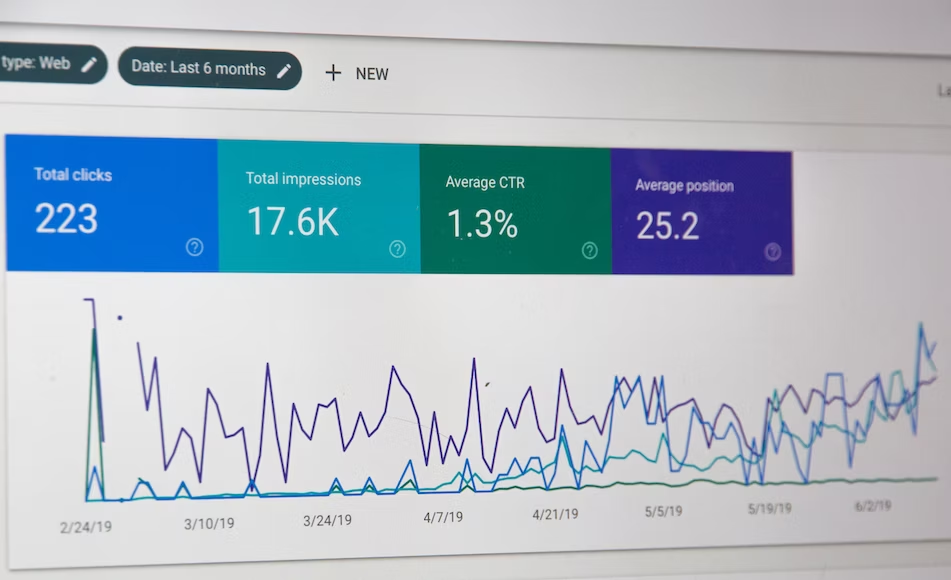Importance of Multi-Channel Selling in E-Commerce
In today’s fast-paced digital world, e-commerce has emerged as a pivotal aspect of business growth, revolutionizing how products and services are bought and sold. As the online marketplace expands, so does the competition among retailers vying for customers’ attention and loyalty.
In this dynamic landscape, adopting multi-channel selling strategies has become paramount for businesses seeking to maximize their reach, revenue, and competitive advantage.
Multi-channel selling refers to offering products and services simultaneously through multiple internet and businesses online platforms, ranging from marketplaces and social media channels to dedicated websites. It can also involve cross-selling between established and new platforms, like Facebook and Poshmark, for increased exposure to users of both platforms.
In this article, we’ll explore the top 10 importance of multi-channel selling in e-commerce and how it can reshape the trajectory of a business in today’s highly competitive digital environment.
Expanded Customer Reach
Multi-channel selling is a game-changer for retailers as it expands their customer reach exponentially. This strategy allows businesses to connect with diverse customer segments and demographics.
Retailers can effectively target a wider audience by being present on various platforms, such as popular marketplaces, engaging social media channels, and their own user-friendly websites. This enhanced reach ensures that their products and brand messages reach potential customers who may have yet to discover them.
Enhanced Brand Visibility
A powerful benefit of multi-channel selling is its substantial brand visibility and recognition boost. When a brand is consistently present across multiple channels, it gains prominence and stays at the forefront of consumers’ minds.
Customers are more likely to trust and purchase from a brand they come across on several platforms. Reinforcing the brand’s credibility and authority instills confidence in potential buyers, encouraging them to convert into loyal customers.
Increased Sales Opportunities
With multiple channels at their disposal, retailers have a greater potential to drive sales. Customers today prefer convenience and ease of access, and multi-channel selling caters precisely to these preferences.
When products are available on various platforms, customers can conveniently find and purchase what they need, significantly increasing completed transactions.
💥🎁 New Year & Easter Deals On Amazon !
Don't miss out on the best discounts and top-rated products available right now!
🛒 Shop Now and Save Big Today!*As an Amazon Associate, I earn from qualifying purchases.
Moreover, retailers can capitalize on the strengths of big platforms, like Facebook, to tailor their offerings and marketing strategies, maximizing their chances of conversion.
Diversified Revenue Streams
Relying solely on a single platform can expose businesses to substantial risks. Sudden changes in algorithms, policies, or market conditions on a single platform can severely impact sales and revenue.
Multi-channel selling mitigates this risk by diversifying revenue streams. When sales are spread across various platforms, the business is more resilient to fluctuations on any platform. This diversified approach acts as a safety net, protecting the business from unforeseen challenges and ensuring a more stable revenue flow.
Better Customer Engagement

Every platform in the multi-channel selling approach offers unique opportunities for customer engagement. By leveraging multiple channels, retailers can interact with their audience through different mediums and touchpoints, fostering stronger customer relationships.
This deepened engagement allows businesses to understand better customers’ preferences, pain points, and shopping behaviors.
Armed with this valuable knowledge, retailers can tailor their offerings and services to meet customer needs more effectively, leading to increased satisfaction and brand loyalty.
Competitive Advantage
In today’s fiercely competitive e-commerce landscape, a well-executed multi-channel strategy can be a game-changer. Retailers can gain a distinct competitive advantage by reaching customers on platforms where their competitors may need a presence.
Being accessible and visible across multiple channels helps attract new customers and ensures that existing customers are continually reminded of the brand.
This sustained presence in the market helps retailers stand out from the crowd and strengthens their position as an industry leader.
💥🎁 New Year & Easter Deals On Amazon !
Don't miss out on the best discounts and top-rated products available right now!
🛒 Shop Now and Save Big Today!*As an Amazon Associate, I earn from qualifying purchases.
Optimization of Marketing Efforts
Operating on multiple channels allows retailers to experiment with different marketing strategies. Each platform has its unique user base and characteristics, and retailers can effectively tailor their campaigns to target specific audiences.
By analyzing the performance of each marketing campaign on different channels, businesses can identify which strategies work best for which platform. This data-driven approach enables retailers to optimize their marketing efforts, allocate resources more efficiently, and improve overall marketing performance.
Data Insights and Analytics
One of the most significant advantages of multi-channel selling is the abundance of data and analytics it generates. Each platform provides valuable insights into customer behavior, preferences, and buying patterns.
Retailers can analyze this data to comprehensively understand their customers, enabling them to make informed and data-driven decisions.
With this rich information, businesses can identify trends, anticipate customer needs, and adjust their product offerings and marketing strategies, leading to better business outcomes.
Flexibility and Adaptability
In the dynamic world of e-commerce, market trends and customer preferences can change rapidly. Multi-channel selling equips retailers with the flexibility to adapt quickly to these shifts. Retailers can shift their focus to other high-performing channels if a specific platform’s performance declines.
Additionally, if there’s a surge in demand for a particular product category on one platform, businesses can quickly allocate more resources to meet that demand. This adaptability ensures that retailers remain agile and responsive to evolving market demands, staying ahead of the competition.
Improved SEO and Online Presence

A strong presence on multiple platforms positively impacts search engine optimization (SEO) and overall online visibility. Search engines value consistent brand mentions, backlinks, and social signals. When a brand is present across various platforms, it naturally garners more mentions, links, and engagement, contributing to improved search rankings.
As the brand’s online visibility increases, it attracts more organic traffic, leading to higher chances of conversion. A robust online presence also enhances brand authority, making it more likely for customers to trust and choose the brand over competitors.
💥🎁 New Year & Easter Deals On Amazon !
Don't miss out on the best discounts and top-rated products available right now!
🛒 Shop Now and Save Big Today!*As an Amazon Associate, I earn from qualifying purchases.
In Conclusion
In conclusion, multi-channel selling is a strategic approach offering numerous advantages to retailers in e-commerce. Businesses can significantly boost their revenue and market presence by expanding customer reach, enhancing brand visibility, and capitalizing on increased sales opportunities.
Moreover, the diversification of revenue streams and the ability to engage with customers on multiple levels ensure a more resilient and customer-centric business model. With optimizing marketing efforts and data-driven decision-making, retailers can stay ahead of the competition and make strategic choices that resonate with their target audience.
The flexibility and adaptability of multi-channel selling enable businesses to navigate the ever-changing e-commerce landscape effectively. Lastly, the improved SEO and online presence solidify the brand’s authority, ultimately leading to long-term success and growth in the competitive e-commerce industry.